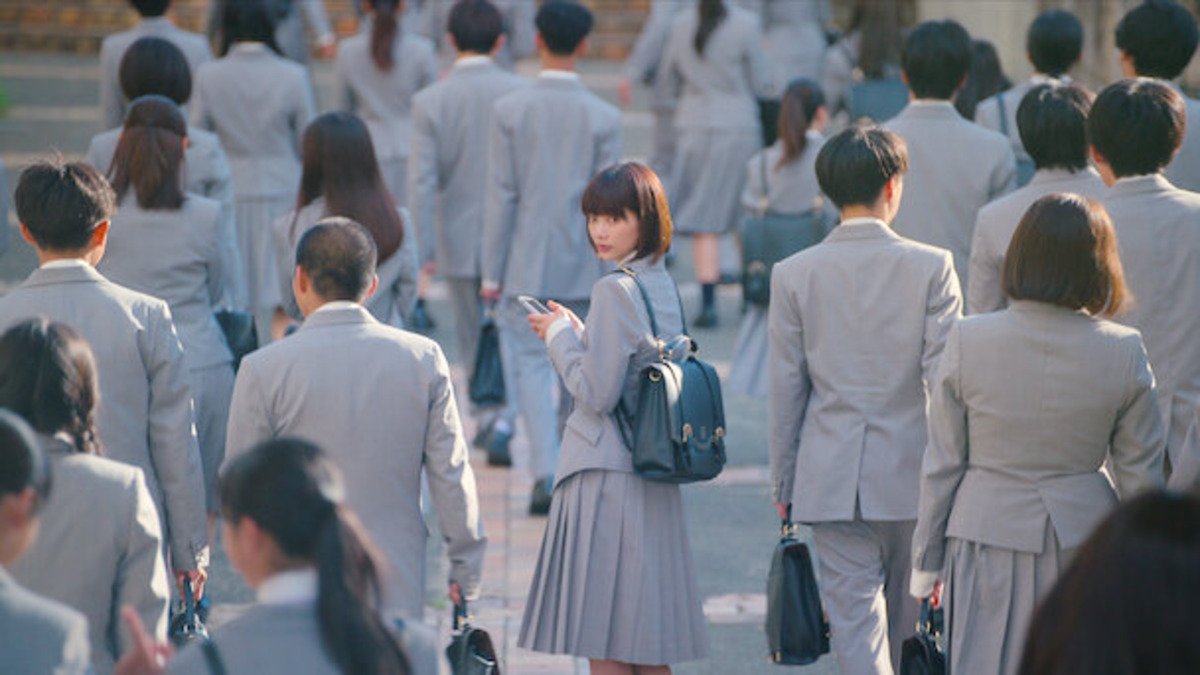All ‘Chastity High’ episodes, ranked from questionable to great

Chastity High just ended, and not in the way most of us would’ve hoped for. Ichica and her friends surprisingly rallied against Principal Ikujima but failed to dismantle the no-dating rule.
Despite its disappointing ending, the premise of the drama was able to hook us to the last episode. Although there were no filler episodes in this drama, some episodes were better, while others were downright questionable.
Episode 8: “My Life, My Rules”
The last episode of Chastity High was titled “My Life, My Rules,” but that sentiment didn’t feel like it got to be fully expressed. Principal Ikujima still had the no-dating rule up by the end. It’s not that I think the ending should’ve been perfect, but there were little to no changes made despite the problems brought on by the dating ban.
Episode 7: “Is It a Crime to Fall in Love?”
The title of the episode shouldn’t be a question! For a school counselor to start crushing on a minor and then to express that even just the tiniest bit isn’t just weird—it borders on illegal. Yuki doesn’t directly return her student’s feelings, but she visits him in the hospital and cries once she sees him heavily injured.
At this point in the drama, everyone has felt the consequences of the no-dating rule—but other episodes have already better illustrated how those consequences affect different students.
Episode 6: “Romance at the School Festival”
It’s hard to feel sorry for Sawa, who used her position in school to hunt other students down. Ichica was too nice to let Sawa slap her—because Sawa was also the reason Ema got expelled in the first place. Rants aside, this episode was important in making Sawa realize that she was being selfish all this time.
The subplot, however, is weird. Yuki, the school counselor, is implied to have some sort of crush on Asuka—one of the students she counsels.
Episode 4: “Three Reasons Not to Fall in Love”
Unlike her peers, Ichica isn’t financially privileged. What she doesn’t know is that some of her schoolmates also have their fair share of struggles. Maki’s family is wealthy but his father is abusive. He only joined the love keepers so that he could save money on his own without his father knowing.
This episode explored the motivations of the students who chose to focus on their studies instead of love.
Episode 3: “School Choir Crush”
This episode solidified Maki and Ichica’s alliance to work as lovekeepers. It’s because they chose to work together that they were able to save one of their classmates’s relationships.
What makes this episode important is that it proved that the dating ban fails vulnerable students. The relationship between Yuto, a teacher, and one of the students was the perfect example of how this dating ban helps nobody. Students like her are groomed, with nobody to turn to because she might get expelled. If the system worked for the students, she could’ve told Yuki, the counselor, much earlier.
Episode 5: “Why Doesn’t Gay Romance Count?”
The only reason that the school is able to enforce the no-dating policy is because students like Sawa are complicit in its implementation. She has a personal vendetta against her best friend, who won’t reciprocate her feelings. She’s still figuring her feelings out like any other queer person her age, but that doesn’t excuse how she outed Yuma and his boyfriend.
Episode 4 is a turning point—if the student council resisted Principal Ikujima’s orders, then many students wouldn’t be expelled or outed. Instead of doing that, Sawa exploited the system so that she could get revenge. It’s petty and irritating, but this episode further shows how students get hurt because of the rule in place.
Episode 2: “Rabbit Hunting”
What made the second episode great was its ability to show how fast students turned on each other once they saw the benefit in doing so. Sawa, whose feelings weren’t returned by her best friend Yuzuku, got revenge on her by joining the love keepers. What was right or wrong didn’t matter, so long as they benefited from the no-romance rule.
This episode also showed the absurdity of Principal Ikujima’s expectations. In her pursuit of creating “perfect” and “ladylike” girls, Ikujima would deprive these girls of education if they chose to have romantic relationships. This episode gets near-perfect marks for plot and exposition.
Episode 1: “My Love Life Started The Day It Ended”
The first episode of Chastity High is the best, simply because it does a spectacular job with character exposition. Before Ichica resorted to blackmailing her classmates for money, it’s important to understand that she doesn’t come from privilege like other students.
Additionally, the first episode also introduces many of the budding relationships and the personal struggles of several characters. Overall, it hooks you into watching more episodes because you have so many characters to root for.
Have a tip we should know? tips@themarysue.com